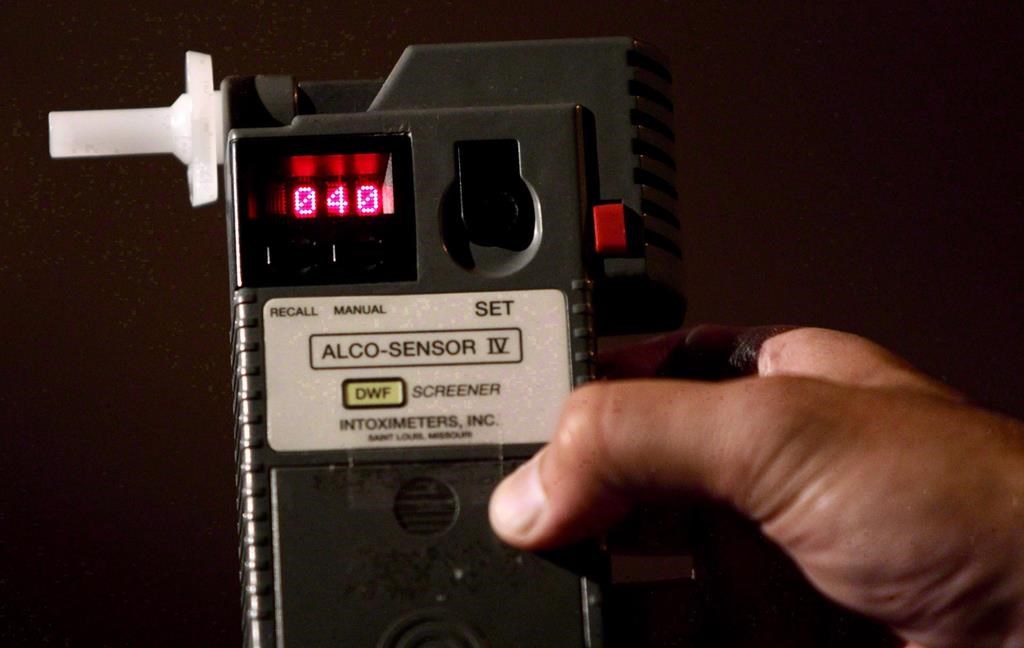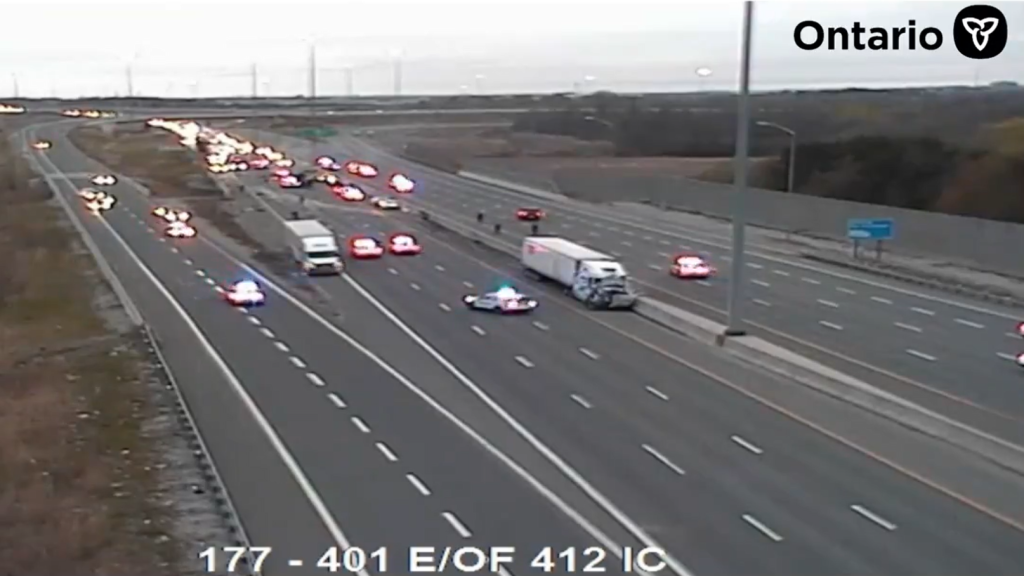Death toll continues to rise, 40 missing while PM Harper to visit Quebec town rattled by train derailment
Posted July 7, 2013 12:13 pm.
This article is more than 5 years old.
LAC-MEGANTIC, Que. – Prime Minister Stephen Harper is planning to visit this Quebec community Sunday, one day after powerful explosions caused by a train derailment levelled the town’s downtown core and killed at least one person, with police predicting the death toll would rise.
“We do expect we’ll have other people who will be found deceased unfortunately,” Lt. Guy Lapointe, a spokesman with Quebec provincial police, told a news conference Saturday night.
Authorities in Quebec say two more people are confirmed dead in the train derailment and massive fire in Lac-Megantic to bring the declared death toll to five.
“We also expect that down the line … there will be more people reported missing than people actually found dead.”
Lapointe refused to give any estimate of people unaccounted for because emergency crews couldn’t reach a two-kilometre-square section of the town out of concern that five of the train’s tanker cars could still explode.
The blasts destroyed 30 buildings and sent spectacular fireballs and mushroom clouds into the sky. The tanker rail cars were carrying crude oil.
“It was like a movie,” said Bernard Theberge, who was close to the accident site and suffered second-degree burns on his arm.
“Explosions as if it were scripted — but this was live.”
Firefighters continued to fight multiple blazes into the night. They doused the five tankers with lake water and foam in an effort to keep them from overheating and exploding.
Authorities said Saturday that no federal assistance — such as military help — had been requested.
“We have all the firemen that we need,” Lac-Megantic fire chief Denis Lauzon said, adding that they had 125 firefighters on the ground.
He also said have crews have all the equipment they need, expect for water bombers, which were busy fighting forest fires in another part of the province.
Lauzon spoke about some of the losses in Lac-Megantic, including the town’s library and its archives.
“It’s the heritage of the town of Lac-Megantic,” he said.
“The history of the town has been lost… These are ancestral buildings that are no longer there.”
The cause of the accident is believed to be a runaway train, according to the railway’s operator.
The president and CEO of Rail World Inc., the parent company of Montreal, Maine & Atlantic Railway, said the train was parked uphill of Lac-Megantic before the incident.
“If brakes aren’t properly applied on a train, it’s going to run away,” Edward Burkhardt told The Canadian Press.
“But we think the brakes were properly applied on this train.”
Burkhardt, who indicated he was mystified by the disaster, said the train was parked because the engineer had finished his run.
“We’ve had a very good safety record for these 10 years,” he said of the decade-old railroad.
“Well, I think we’ve blown it here.”
Responding to a reporter’s question during Saturday’s news conference, Lauzon confirmed that firefighters in a nearby community were called to a locomotive blaze on the same train a couple of hours before the derailment. Lauzon said he could not provide additional details about that fire since it was in another jurisdiction.
The multiple blasts came over a span of several hours and wiped out some 30 buildings. Locals say that many are still unaccounted for in the town of 6,000, about 250 kilometres east of Montreal.
Theberge, who was outside on the bar’s patio at the time of the crash, feared for the safety of those inside the popular Musi-Cafe when the first explosion went off shortly after 1 a.m.
“People started running and the fire ignited almost instantaneously,” he said.
“It was like a wall of fire with intense heat.”
Witnesses said the eruptions sent many stunned locals darting through the streets under the powerful heat of towering fireballs and a red glow that illuminated the night sky.
Between 1,500 and 2,000 people were forced from their homes as authorities set up a wide security perimeter around the town. Officials have expressed concern about poor air quality in the area from the smoke.
Several tankers from the train of more than 70 cars exploded in the downtown core, a popular area that is often busy on summer weekend nights. It’s also a district that many here called home.
After the explosions and fire tore through the centre of town, many buildings were gone, almost as if they had vanished. Lines of tall trees in the area looked like giant standing matchsticks, blackened from bottom to tip.
Asked by a reporter what the scene looked like up close, Lauzon summed it up: “A war zone.”
Harper called the disaster “shocking and truly devastating” during a news conference in Calgary Saturday. A spokeswoman said Harper wanted to personally see the devastation.










